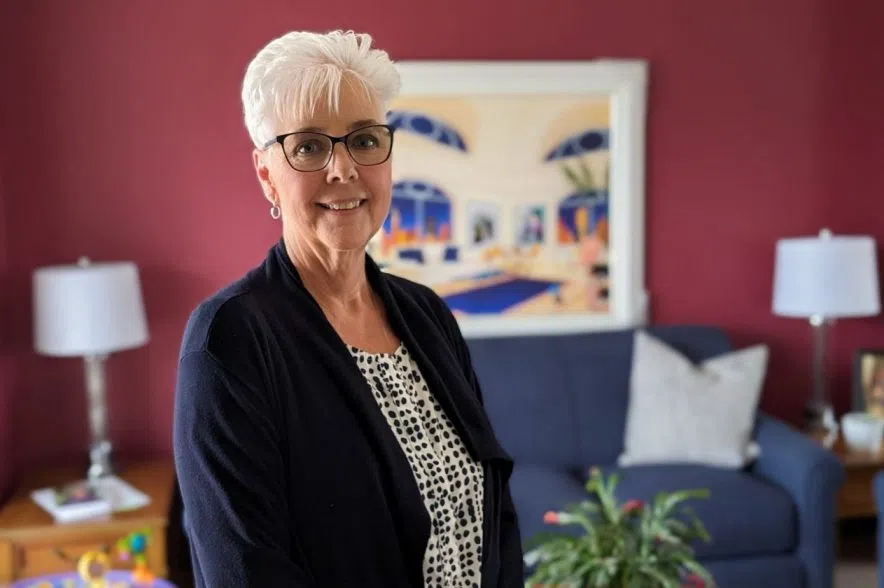While teachers mull over the provincial government’s contract offer, a Regina woman who spent 23 years in schools is explaining the reality in classrooms today and why teachers have been so set on remedies for classroom complexity.
“People don’t understand the dynamics of what classroom size and complexity is because it is way more intense and there’s way more needs in the classroom than there ever has been before,” said Dianne Swann.
Swann spent more than two decades as an educational assistant in Regina for very early grades, and retired in February.
She said when she hears people talk about classrooms now, they’re usually thinking of how classrooms were when they were in school. But Swann said they’re nothing like that anymore.
Special needs
Years ago, Swann said kids with special needs were in separate classrooms, but now they’re integrated in with the other kids. Swann said that’s good, noting there are places for those kids, but she said there’s also no minimum threshold for how well they can function.
“Quite often they’re coming into a classroom that’s not designed for their needs,” she said. “It’s not set up safely enough for them so you have not enough people to help monitor them (and) to help aid them. There’s not enough EAs (and) there’s not enough professionals trained, so it can create a dangerous situation for that student, for their fellow students (and) for the employees working in there.”
Swann said these days, classrooms can be evacuated on a regular basis because one student is creating a dangerous environment.
“That’s the learning environment for little ones to have to go through where they’re having to evacuate their classroom, or someone’s evacuating that student to protect the safety of fellow students and staff,” Swann said.
She said this is all because of cutbacks in staffing and special-needs programming.
When she started her career, Swann said she would be assigned to one student and follow them and help them through the day, occasionally helping another student or two when her assigned student was working independently.
When she left, Swan said she was having to help more and more kids until she and the teacher would be working full tilt the whole period but still couldn’t get to everyone.
“It’s like high-speed whack-a-mole. You’re trying to meet all the needs of all the different students,” she said.
English as a second language
Swann said there’s also an increase in kids coming into school who don’t know a word of English, and she said the one-year English program has been cut and supports often don’t start until Grade 3.
“There’s no explanation in your language of where the bathroom is, where the toilet is or what’s going to happen at lunch. Quite often, the families don’t have good English either, so quite often they’re plunked down and they’re left,” she said.
“So that becomes an issue when they’re in the class and they’re not understanding. Then behaviour becomes an issue and then you’re trying to deal with that.”
Swann said one or two students without English in a class might be manageable, but some teachers have three or five in a class who have no English, plus another 28 students to teach.
Stress on teachers
It can be difficult for the kids, said Swann, but also for the teachers and staff who are doing their best to give the kids a great education.
“It’s really hard to watch teachers struggle and staff struggle, and it takes a toll on all of them because they’re trying to do what they love to do, but they just don’t have the support,” she explained.
Even without all the kids with special needs, Swann said class sizes are huge now.
“You’re just really outmanned. You don’t have the resources, you don’t have the support (and) you just physically can’t do it,” she said.
Swann said she’d heard about teachers quitting en masse before they reach even the fifth year of their career. She herself had a host of medical issues from the stress and frustration of the job.
“I’ve ended up in ER (and) I’ve ended up on different medications, but I’m not different than anybody else. I see my colleagues going down like bowling pins,” she said.
Since she retired, Swann’s been able to get off one of her medications.
With all this experience behind her, Swann doesn’t think the asks from the teachers during this contract fight have been unreasonable. She doesn’t think government has a clue what things are really like in classrooms these days.
Teachers are expected to vote on the potential deal presented this week in May.











